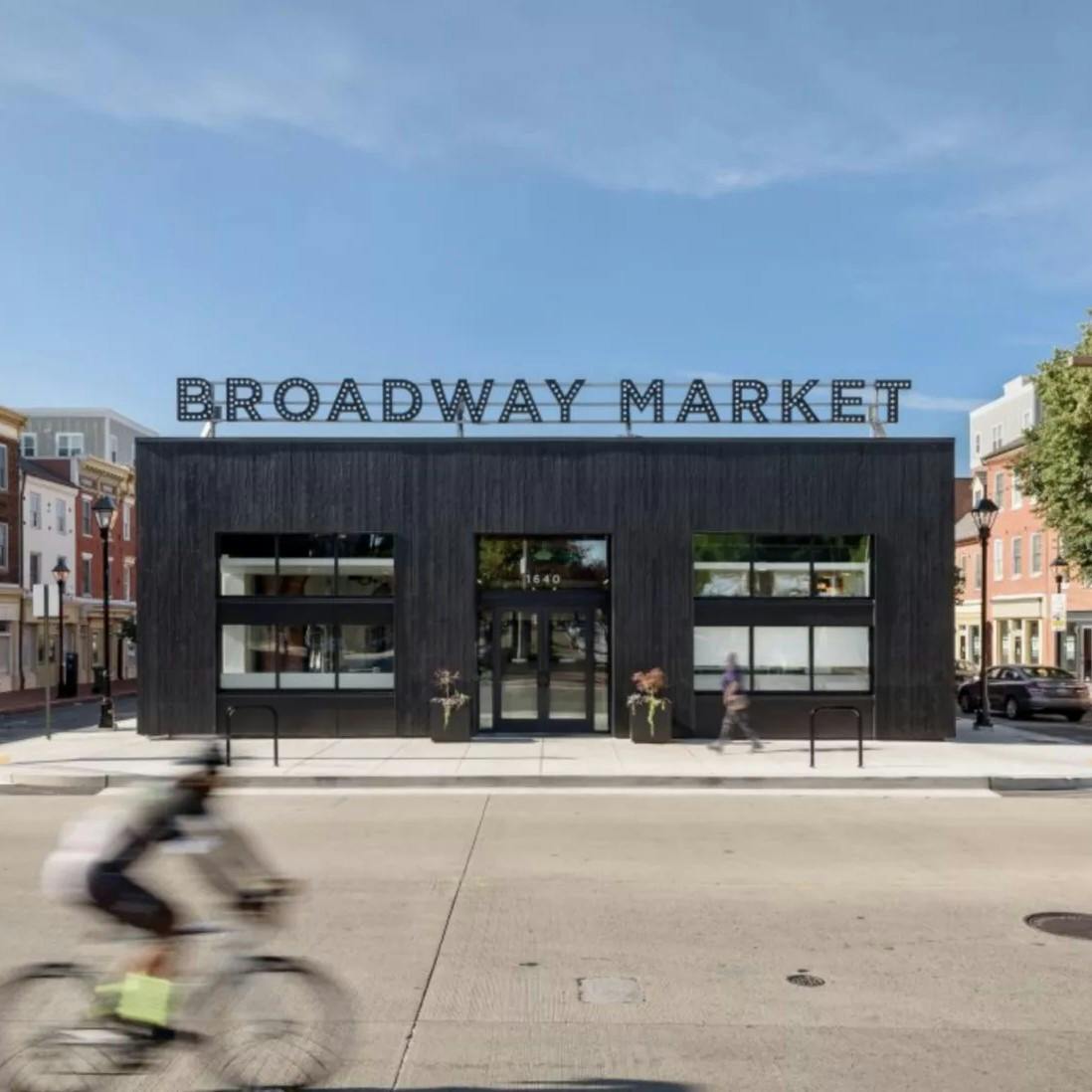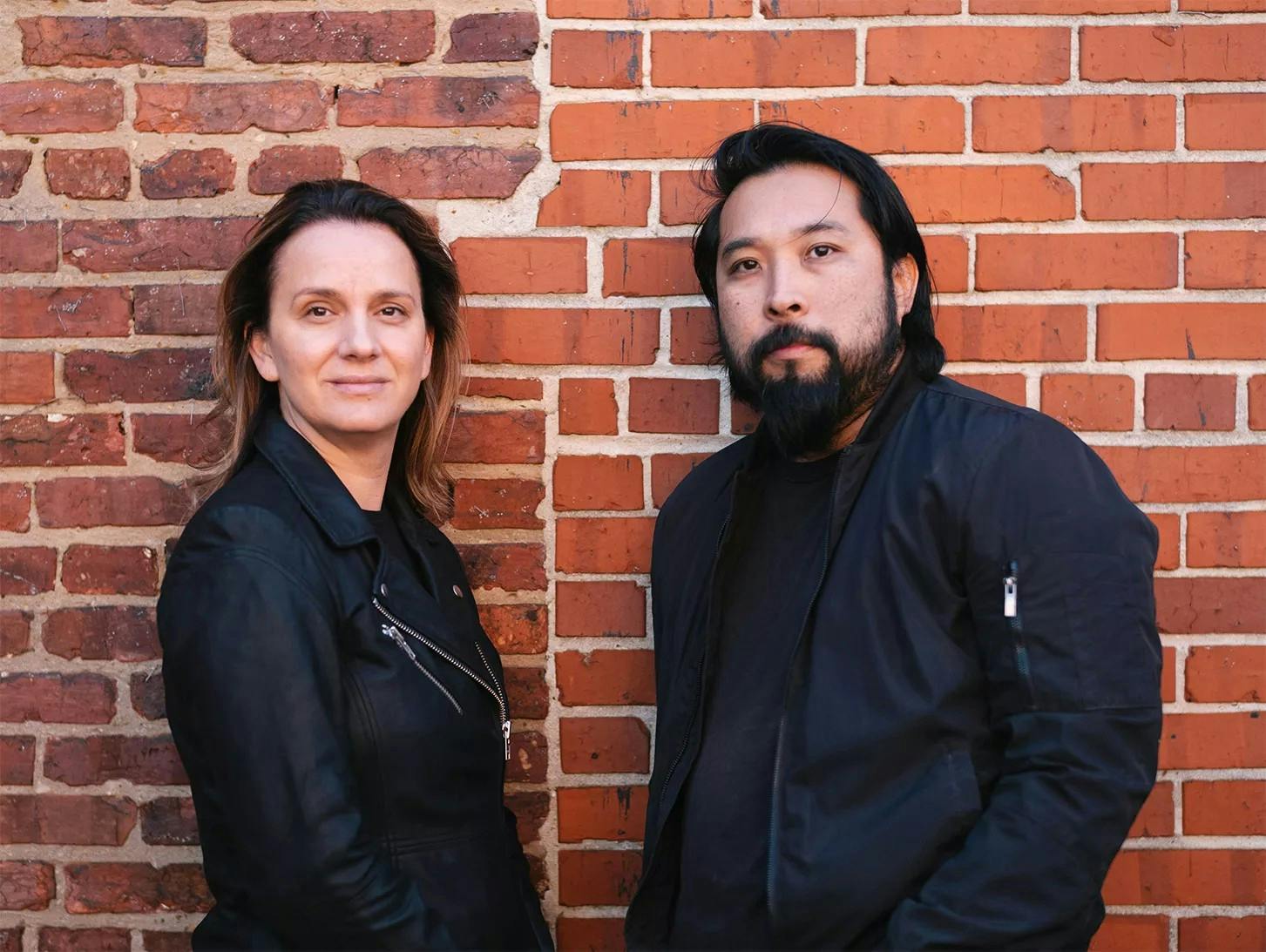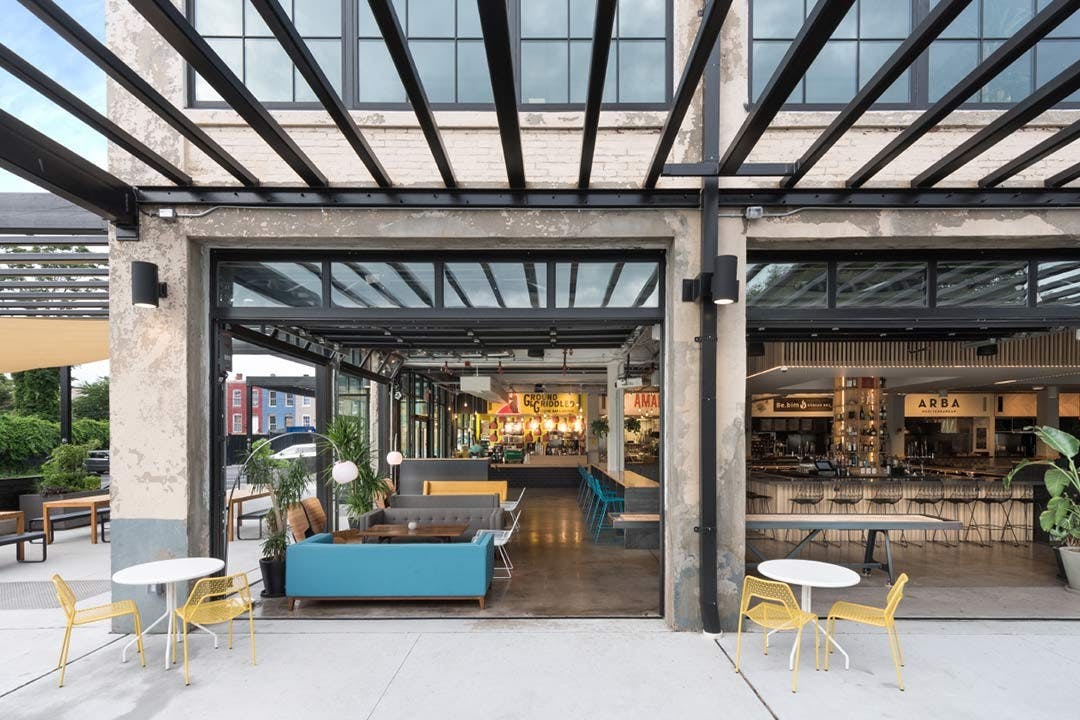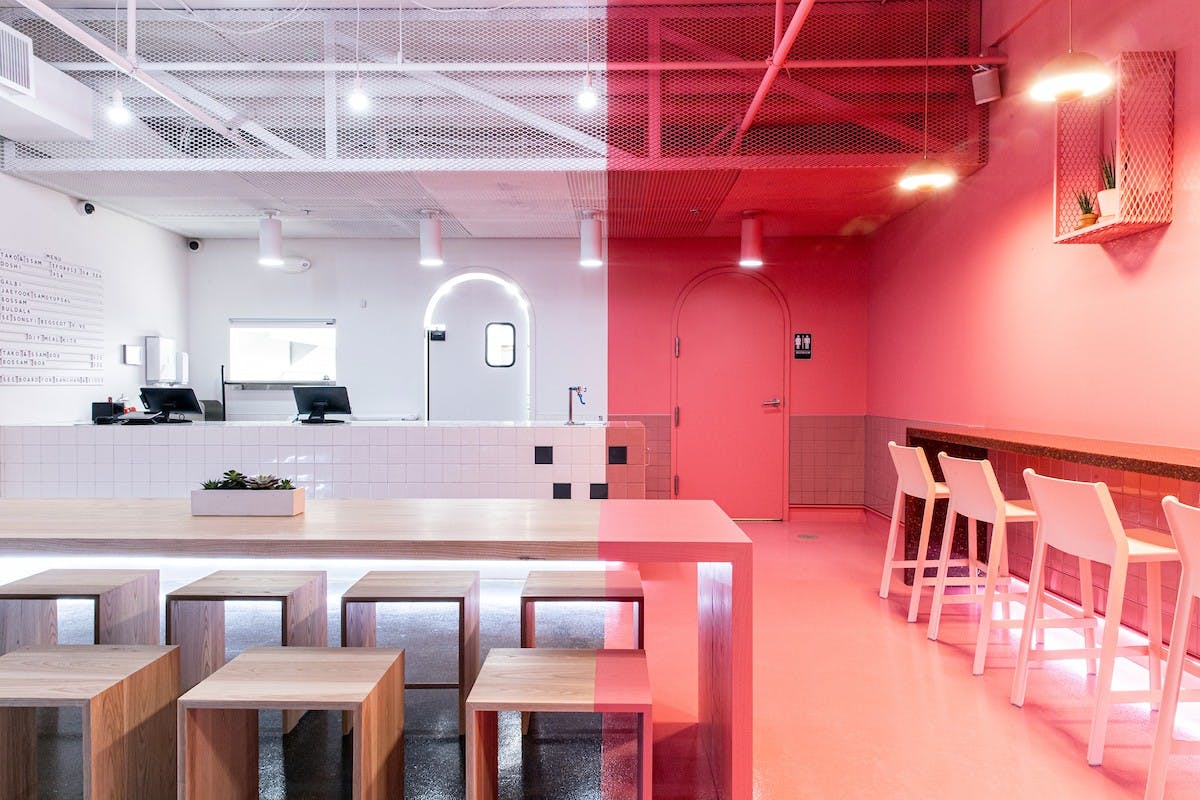After launching Cohere's Baltimore office in 2015, the PI.KL Studio team jumped high onto the “must-know” list, as their projects and visual aesthetic were immediately recognizable and unforgettable. Getting to know them a bit more, it’s easy to see why.
Tell us about both of your backgrounds, how you met, and how you ultimately became business partners to create PI.KL
Pavlina and I met in college. We were both attending Texas Tech University, College of Architecture. I (Kuo Pao) came from a family of Texas Tech alum so it was inevitable that I would find myself there. Pavlina landed from Bulgaria on a scholarship to study at Tech. We were first introduced to each other by one of our professors that we both admired. I think from there, I sort of stalked her in the computer lab days on end until I had the courage to finally ask her out on a date. The rest is history. I graduated a year ahead so after trying to search for a job in the economic recession of 2004, I finally accepted a position with RTKL in Baltimore. Pavlina would follow shortly after finishing her thesis and joined Hord Coplan Macht. We both worked at our respective firms till around 2007 when we got an opportunity to link up with former college friends in San Diego to work for Sebastian Mariscal Studio. Working 60-70 hour weeks, our 2 years there felt like 4 but we learned so much about the design, build and development part of the profession and how a small boutique design firm works.
For those who don’t know, PI.KL is actually both of your initials. Is it pronounced pickle or P-I-K-L?
Yes, “PI” stands for Pavlina Ilieva and “KL” is Kuo Pao Lian. You can pronounce it both ways. When we were selecting names, I think we went through the gamut of different possibilities but ultimately kept coming back to making it simple and not taking ourselves too seriously. Once we realized that our initials inadvertently pronounced pickle, we thought it was a bit playful so we just accepted it. Coming from Bulgaria, all things pickled are huge and I like pickled foods as well, so why not!
PI.KL is based out of Baltimore, were their specific factors that contributed to making the decision to set up base there? What is the best part about being in Baltimore for the firm now?
Basing the office in Baltimore basically originated with the relationships we had built while we worked here from 2004-2007. We not only worked at the architectural firms, but we both taught at the Maryland Institute College of Art, and we engaged in numerous extra-curricular projects and events that allowed us to build a great pool of connections that we kept strong while we were in San Diego. After we decided to move on from Sebastian’s studio, we initially thought of sticking around or going north to San Francisco or Seattle, but Baltimore just kept calling for us. We already had some potential clients that we were starting to talk to, Pavlina had been discussing a teaching position with Morgan State’s School of Architecture + Planning and MICA needed teachers as well, so we came back and dove right in.
Hard to pick just one thing that makes being in Baltimore great for the firm. But if I had to start with one of the important factors, it would be the amazing people here! We’ve been so lucky to have worked with clients, partners, consultants, community, and city agencies that are passionate, thoughtful, and who truly want to see this city become a contemporary metropolitan city. Despite all the setbacks, the development opportunities and entrepreneurial mentality are quite strong here so that keeps things constantly growing and evolving, it keeps work flowing into the office.
"The next generation of developers here are eager to make a mark in Baltimore and they want to break the norm of the cookie-cutter architecture and developments that we have seen here for so long. They are savvy and they too know what other contemporary metropolitan cities are doing, and we seek to align ourselves with those like-minded individuals with the common goal." - KP
And with this new age of local small and large businesses showing no fear in taking their passion and concepts to test, even for the first time in an atmosphere of this city that wants more and more, you have a perfect storm of people needing designers that can bring them to that place and think outside the box.
What values do you look for in partners for projects and how do you leverage these collaborations? What made you interested in collaborating with Cohere?
We look for partners who A) put design first B) take on every project uniquely and do not just replicate past models or standards C) believe in collaboration and communication as key factors in developing a project. We were interested in Cohere because they retained A, B, & C. (plus Chris Richards sought us out, and the rest was history. Pretty hard to say no to him!)
What is your approach when it comes to choosing projects? Does PI.KL have a set of core values you use to decide which projects are the right fit?
Similar to what we look for in partners, we look for projects and clients who want good design and are dedicated to bringing contemporary design to the forefront here in Baltimore and outside. We believe that good design = good business no matter what branch of the economy our clients operate in. Communication, collaboration, and trust are key. If they don’t trust us or if we are not able to establish a clear process with them, then it just makes everything harder.
What is your perspective on preserving the authenticity of the cities you work in? Is this something that you consider when starting to develop ideas for new projects?
We take this as a given. Cities have history and we should preserve certain relics and allow them to live on. But we must do this with the future in mind. Preservation for preservation’s sake needs to be carefully approached with the understanding that to become a contemporary metropolitan city, we must respect historic structures and spaces, but reimagine them to evolve with new uses and new architectural sensibilities.
What projects, visionaries, or brands are you excited by these days? I know you were in Europe for a bit recently.
We were just in Copenhagen and we can’t say enough about how much we loved not only the architecture but how the city embraced the bike as their main form of transportation and has dedicated so much towards that cause and also their commitment to inclusive housing. There is a clear goal to develop a city for the citizens and seek longevity and true sustainability towards cities of the future. A similar model and related systems are possible and can happen here in Baltimore. We just need to keep pushing the envelope and showing that we can do it too and it just takes trust and vision.
If you could go back to earlier in your career and give yourself advice, what would you say?
We have learned from experiences both good and bad, I don’t think I would change anything. Our path was and is our path, we accept what we went through and look forward to what is in store for us!



